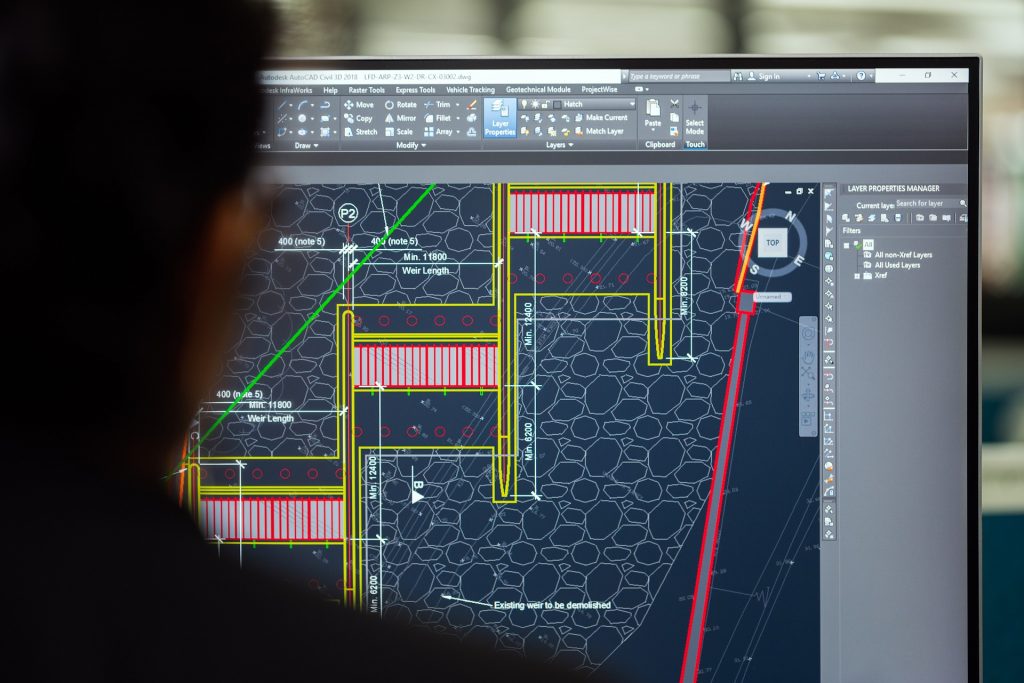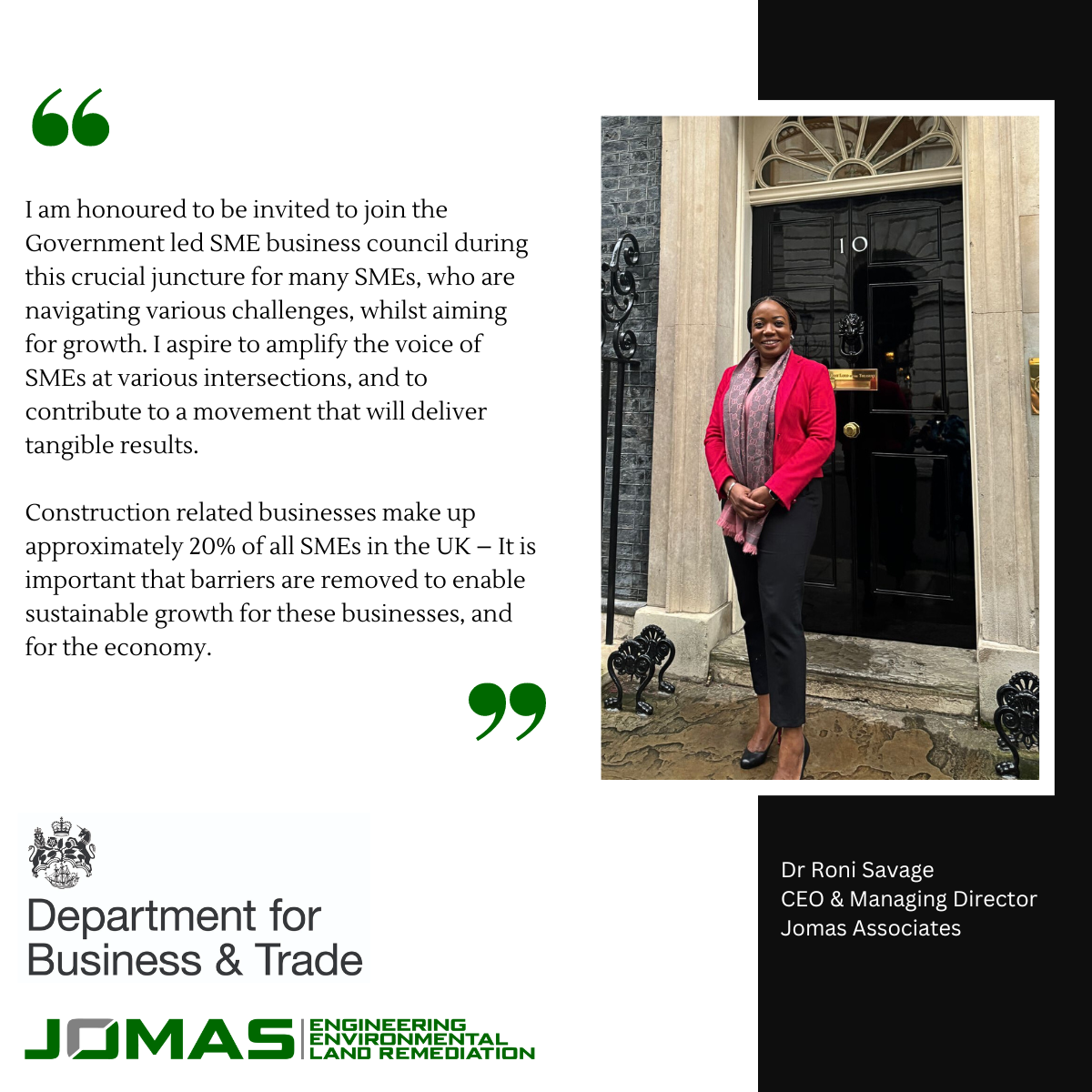The ground conditions of a site in their nature are extremely variable. Unlike the behaviour of construction materials, the composition of the ground can vary across even a short distance and different environmental stressors such as drainage and site history have a considerable impact on how the ground will react to added pressures or changes from new construction and development.
Geotechnical engineering is an important aspect of civil engineering, and experience has shown that failures in engineering projects are often associated with the ground, however careful consideration of the ground conditions with thorough geotechnical evaluation will help prevent costly problems.
Jomas Associates has a team of qualified and experienced professionals and with our depth of experience working across a wide range of different construction projects, we know that investment into a thorough and detailed geotechnical evaluation of a site, tailored to the project from the outset, is a worthwhile investment that can help with significant cost savings.
Ground Investigations
A detailed geotechnical evaluation starts with a Desk Study, this typically includes a review of historical maps and aerial photographs, consideration of the geological and hydrogeological setting of the site from published sources, contact with regulatory authorities and retrieval of information from database resources. The Desk Study, combined with a site walkover provides information on the potential liabilities a site poses, from a qualitative viewpoint.
The findings also inform the next stage of the investigation, a range of ground investigation techniques such as trial pitting, window(less) sampling and cable percussive boreholes, to determine the conditions of the ground and highlight potential ground issues that require further consideration prior to completing the structural design and plans.
Geotechnical Considerations for Structural Design
Ground Composition
Ground composed of soft soils or ground that has been historically filled can settle over time, creating issues with development. Development of a site changes the loading on the ground, altering the stress state and potentially compounding these issues that are not immediately visible without a detailed investigation. Potentially this can lead to ground movement and create problems to the structures built on the land.
By understanding the ground conditions in detail and determining additional loads and potential impacts on the ground any potential issues can be accounted for accordingly in the foundation design. Discover more in our case studies.
Ground Stability
The climate and in particular unusually high rainfall can have a significant impact on the land over a longer period of time. Surface and groundwater drainage conditions and the impact of development needs to be well understood and managed to minimise future incidents. For example, slopes can often withstand difficult weather conditions in the short term but in the longer term, the ground conditions can change dramatically, and often with considerable impact. Geotechnical principles can help plan for the longer-term impact of different weather conditions.
Geological Voids
Voids can occur in the ground over time. Depending on the composition of the soil and underlying bedrock and water conditions, some rock deposits can dissolve leaving behind a void and cause a major problem for new developments. The potential for ground voids and/or dissolution features is assessed from the desk study stage through to the ground investigations.
Ground History
The history of land can give important insights into how it will behave with additional pressure from development. For example, in areas where coal mining has historically taken place, there is a risk that the ground may collapse due to cavities, as well as the potential instability of mine waste. Previous mining areas also have other potential issues that can be identified such as hazardous ground gases, contaminated water and the risk of underground fire. The potential for mineworks and other historical ground activity is assessed from the desk study stage through to the ground investigations.
Building near Trees
The combination of shrinkable soils and trees, hedgerows or shrubs represents a potential hazard to structures that requires special consideration during the design process. Trees, hedgerows and shrubs take moisture from the ground and, in cohesive soils such as clay, this can cause significant volume changes resulting in ground movement. This has the potential to affect foundations and damage the supported structure. In order to minimise this risk, foundations should be designed to accommodate the movement or be taken to a depth where the likelihood of damaging movement is considered to be low. An appraisal of tree species, water demand potential, and distance to proposed foundations, as well and understanding of ground conditions is critical for the design of suitable foundations.
Ground Movement
Ground movements can arise for a wide range of reasons, including excavation of basements, tunnelling, foundation loadings, and clay shrinkage and swelling. Using specialist computer software, potential ground movement which may occur as part of a new development can be modelled. This will assess the impact of the development on adjacent buildings, structures and buried assets, ensuring that measures can be put in place to prevent damage.
Impact of Development
New development may create a significant impact on the land and the surrounding area. Detailed ground investigations, assessments on issues such as flood risk and careful planning early on in a project allows us to detail pragmatic and economic solutions to potential problems that could be created by land development. Critically investment into a tailored approach with investment into the suitability of ground conditions prior to construction work starting will in the long term prevent costly issues arising.
How Jomas Can Help?
Jomas Associates offer comprehensive ground investigation and monitoring services including :
Land Contamination Risk Assessments and Remediation
Tree/Arboricultural Assessments
For more information please do get in touch and we are happy to advise. Please email us at quotes@jomasassociates.com.



